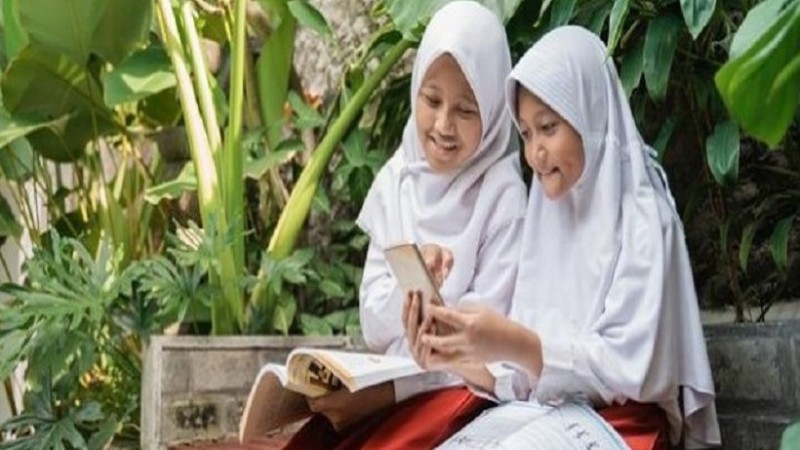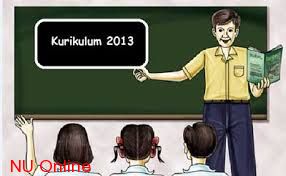Towards a new normal school with face-to-face learning trials
Ahad, 5 September 2021 | 11:56 WIB
After attending school from home for more than a year, face-to-face learning (PTM) is limited to being conducted. This is a breath of fresh air that people in the education world have been waiting for, who are bored and tired of studying in front of a device screen or monitor. However, there are a number of prerequisites that must be met so that face-to-face learning at school does not pose a new risk of Covid-19 transmission in the world of education.
When they first started distance learning (PJJ), many children and teachers liked it because they didn't have to come to school; can study without the need to wear school uniforms; so that no special preparation is needed from home to school which is sometimes far away. Everything is done online and the rest of the time can be used for anything fun.
However, it turns out that online learning is not as comfortable and effective as face-to-face learning. Students are stressed because every day for hours they have to stare at screens; the students lost friends they used to joke with during school break. Meanwhile, the teachers were dizzy because many students had a decreased level of understanding or did not submit assignments. There are certain materials that are difficult to teach online. Evaluation is also difficult because the teacher does not know who is doing the work, whether it is the students themselves or their parents.
Meanwhile, parents are also stressed because they have to remind their children who sleep until noon and constantly have to be accompanied when doing assignments. Students, especially if they are still in elementary school, who have not been able to manage themselves, will tend to play around and neglect assignments. Automatically, parents' time that should be for work or other activities is taken up.
Distance learning only emphasizes the academic aspect, which is much reduced in quality compared to face-to-face learning. Non-academic learning that is part of face-to-face learning in schools is left untouched. Interaction between students is social learning, group assignments give lessons on teamwork and leadership, presentations in front teach students to speak in public.
As social beings, non-academic learning teaches soft skills. This is even more important than cognitive knowledge, which in the future will increasingly be replaced by artificial intelligence. These soft skills must later be strengthened in learning in schools that cannot be done online.
In the implementation of face-to-face learning, the safety of students, teachers, and education personnel must be the main priority. For this reason, health protocols to prevent the transmission of Covid-19 need to be prepared. Facilities and infrastructure to support learning during this pandemic must be prepared. The mental condition of parents and children must also be prepared for the possibility of various risks that arise.
The government has made a number of rules and instructions for the implementation of face-to-face learning. The problem is how it is implemented in the field because the conditions in each region are different while the full supervision capacity is also limited. If the level of compliance with health protocols is low, then the risk of exposure to Covid-19 increases.
Covid-19 has changed many things, including the world of education, which may change forever. Even if there is vaccination, there is no guarantee that this virus will disappear. The emergence of various variants shows that there is still the potential for other variants to appear which may have stronger destructive power. Thus, the world of education must also prepare itself to carry out the learning process side by side with Covid-19. Perhaps Covid-19 will be treated like the flu.
The positive value of online learning, such as the habit of accessing an unlimited number of learning resources on the internet, must be continued. Teachers must direct and challenge students to use the internet well, such as choosing authoritative references, accessing appropriate sources, time management, remembering unlimited choices that tempt users to finally lose track of time.
With easier access to knowledge, the most important thing for educators is how to foster enthusiasm and interest in student learning. Next, they will access materials that are easily accessible on the internet. They can also learn something according to their ability; can repeat the material whenever necessary. Under these conditions, the ability to maintain student consistency and interest is required.
Another thing is how to teach a good way of learning, which is effective and efficient. The problem at this time is not the lack of learning materials, but how to choose a lot of important information to absorb. Internet content consists of links that invite all netizens to browse various other information, which is actually not very relevant and distracts from focus. Owners of websites teach netizens to stay long and open many links because they earn revenue from advertisements displayed on website pages.
This limited face-to-face learning trial (PTM) is a step towards a new normal learning model, whether it will be treated in a hybrid way or fully face-to-face. There has never been a previous reference to this model. Thus, it is currently a trial process with various models that may not be completely accurate. But this must continue. It will be difficult at first, but once a good pattern is found, the results will be even better than the previous conventional approach. (Achmad Mukafi Niam)
Editor: Sudarto Murtaufiq








